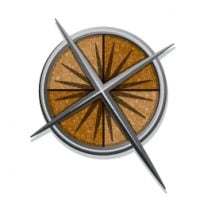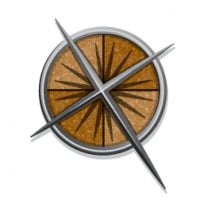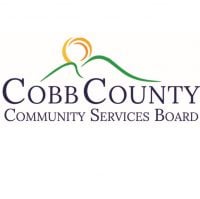Agape Counseling Center
Drug Rehab Center in Kennesaw, Georgia
- Substance Abuse
- Opioid Addiction
- Dual Diagnosis
- Drug Addiction
- Alcoholism
Agape Counseling Center in Kennesaw, GA provides comprehensive personalized drug and alcohol addiction treatment services, including dual diagnosis and medical care, with a team of experienced professionals and accepts private health insurance.
Multiple patients have reported Agape Counseling Center as permanently closed.
Research other rehabs in Kennesaw, Georgia, or get help finding an open facility.
Our experts will find you an alternative facility.
(888) 674-0062 24/7 Free, Confidential, Expert HotlineAbout Agape Counseling Center in Georgia
Agape Counseling Center, located in Kennesaw, Georgia, is an Addiction Treatment Facility that specializes in providing affordable, comprehensive, and compassionate care for individuals dealing with substance abuse, dual diagnosis, alcohol addiction, opioid addiction, and drug addiction. They provide multiple levels of care to individuals including Drug Rehab, Outpatient, Dual-Diagnosis, and Intensive Outpatient services. In addition, they accept many forms of private health insurance.
Agape Counseling Center provides a wide variety of services to individuals dealing with addiction and substance abuse. Their individualized treatment plans are tailored to each person’s individual needs and include evidence-based treatment, holistic therapies, group counseling, education on addiction and recovery, and family therapy. To ensure quality care, they are licensed by the Georgia State Department of Behavioral Health and accredited by the Commission on Accreditation of Rehabilitation Facilities. Agape Counseling Center is committed to helping individuals struggling with addiction in the Kennesaw area.
Genders
Ages
Modality
Additional
Conditions and Issues Treated
Substance abuse is the excessive use of any drug. This includes alcohol, medications, and illegal drugs. Substance abuse is treated with a combination of physical and mental treatments. Patients detox and follow up with therapies that target the underlying cause of the addiction. Substance abuse is a severe problem that can be successfully treated with a variety of therapies. Agape Counseling Center treatment uses a combination of therapies along with other resources to overcome substance abuse.
Opioid addiction treatment should be done in a medically supervised drug rehab. While taking opioids, users will typically use other substances to enhance the effects of opioids or to reduce the adverse effects of opioid use. Opioid addiction treatment will include detoxification and drug rehab counseling to help both the user and their loved ones learn how to live a successful sober lifestyle.
Treatments such as methadone, buprenorphine, and naltrexone are three medications that can help treat opioid addiction. These drugs work on the brain’s pleasure center and reduce cravings and the effects of illicit opioids such as heroin. These drugs can be either given orally or by injection. Individual drug rehab counseling sessions can be helpful to discuss any questions or concerns with the drug treatment program. This counseling will also help the user set goals for when they finish drug rehab.
Opioid addiction recovery is a long process. Many of the changes to the brain caused by opioid use cannot be undone, but with time and the proper treatment, a person can return to normal function. After detox, treatment will include drug rehab counseling and entering a halfway house or sober living community. Aftercare is critical to long-term recovery, as it helps the user avoid relapsing and entering back into drug rehab.
Levels of Care Offered
This center offers a variety of custom treatment tailored to individual recovery. Currently available are Drug Rehab, Dual-Diagnosis, Intensive Outpatient, Outpatient, with additional therapies available as listed below.
Intensive outpatient treatment is a type of comprehensive addiction care. Unlike conventional residential treatment programs, the patients live at home during the recovery process. This means that one can continue working and caring for their families. These also allow people to keep pursuing their studies while also working on their sobriety.
Outpatient treatment can help one transition to normal life from the round-the-clock supervision and treatment available during inpatient treatment. It is an excellent tool to ensure long-term recovery. However, it is essential to note that intensive outpatient treatment in itself does not remove patients from the real-world setting. This means there’s always a higher risk of coming across environmental triggers. To further prevent relapse, an outpatient treatment center should be able to provide ongoing support services.
Once the patient is enrolled in an intensive outpatient treatment program, they will be expected to attend therapy and group meetings daily for a stipulated period. The frequency and duration of each session will depend on the patient’s needs and level of addiction. This can help curb the habit and deal with underlying issues that led to it. Most of these professional treatments are designed to allow patients to structure their daily schedules in a way that is conducive to recovery.
“Outpatient treatment is ideal for those who have a lower intensity addiction. It’s also suitable for those with a supportive environment and those on a tight budget.
Outpatient treatment can be considered the lowest intensity level of addiction treatment. It is ideal for early phase addiction or lower intensity addictions. It may involve weekly sessions instead of daily. Peer group support, 12-step programs, and individual counseling may still be used and anti-addiction medication.
Therapies & Programs
No single treatment works for all addicts; therefore, the goal of treatment and therapy should be to find what works best for each individual. Some people requiring addiction treatment may only need a few weeks of inpatient care. Others will require long-term residential care. Tolerance and withdrawal levels vary from person to person and thus affect the intensity of the treatment needed.
If an individualized approach to treatment and therapy is not offered, addicts may fail to reap benefits from their efforts. Professionals must customize plans according to their patient’s needs, limitations, and strengths. The goal of all forms of addiction treatment should be for addicts to find healthy ways to cope with their addiction and its underlying causes.
Couples therapy for drug addiction is a unique form of therapy that allows family members to work through the emotional issues of their loved one’s addiction together. Family members can support each other while learning how to cope with the addiction and encourage healthy changes.
Accordingly, couples therapy for drug addiction is designed for an addict and their significant other or spouse. The two will work with a therapist to learn how the addiction affects themselves and the relationship and how to break the negative patterns of behavior that may have developed.
Drug addiction can destroy a person’s life, as well as their family and friends. The loss of one’s ability to choose how to live and behave often leads the addict into depression, anger, guilt, and many emotional problems.
The therapies usually include siblings, children, and parents who are involved in their daily lives. These sessions are vital because they address past issues that may have hampered an addict’s or alcoholic’s recovery and provide support at a crucial time!
One of the most critical aspects of family therapy is helping addicts’ loved ones see their situation in a new light. It’s also one of the most challenging things a family can do when a loved one struggles with addiction or alcoholism.
Group therapy is held in a safe, controlled setting where patients can feel comfortable sharing their struggles and gaining perspective through shared conversations. It takes place in a group rather than one on one to prevent feelings of isolation or being unique in their situation while creating an environment for addicts at Agape Counseling Center to develop fellowship, accountability, and support. Group therapy is an important tool in recovery that prevents cravings that prompt a return to active addiction.
Payment Options Accepted
For specific insurance or payment methods please contact us.
Is your insurance accepted?
Ask an expert, call (888) 674-0062
Additional Details
Specifics, location, and helpful extra information.
Kennesaw, Georgia 30144 Phone Number(507) 832-8033 Meta DetailsUpdated November 25, 2023
Staff Verified
Agape Counseling Center Patient Reviews
There are no reviews yet. Be the first one to write one.
Kennesaw, Georgia Addiction Information
Prescription opioid use has caused a large increase in the total amount of overdoses in Georgia. Almost 12% of the Georgia population uses illicit drugs each year, and slightly over 3.5% also abuses alcohol at the same time. This does not include those who binge-drink at least once a month, which includes 20% of all Georgians.
According to the National Institute on Drug Abuse, drug addiction is a serious problem in Kennesaw, Georgia. Kennesaw's most commonly abused drugs include marijuana, cocaine, methamphetamine, and prescription drugs. In 2015, there were over 11,000 admissions to treatment facilities for heroin addiction alone. There are various drug treatment and rehabilitation options available in Kennesaw, Georgia. Some of the most common treatment programs include inpatient rehab, outpatient rehab, and 12-step programs.
Treatment in Nearby Cities
- Villa Rica, GA (27.9 mi.)
- Chamblee, GA (20.0 mi.)
- Buford, GA (34.7 mi.)
- Acworth, GA (4.8 mi.)
- Milledgeville, GA (103.0 mi.)
Centers near Agape Counseling Center




The facility name, logo and brand are the property and registered trademarks of Agape Counseling Center, and are being used for identification and informational purposes only. Use of these names, logos and brands shall not imply endorsement. RehabNow.org is not affiliated with or sponsored by Agape Counseling Center.



